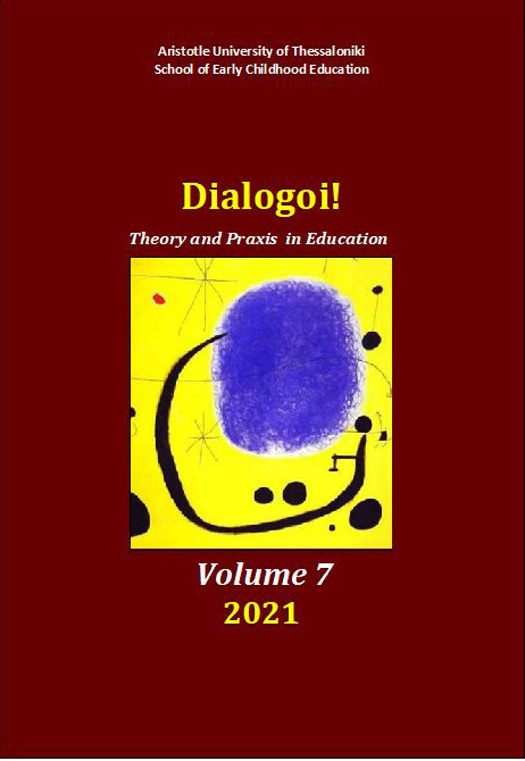Application of Makarenko's pedagogical proposal in the education of unaccompanied minor refugees

Abstract
The aim of the present paper is to propose a pedagogical-educational program based on Anton Semyonovich Makarenko’s theory. This proposal consists a response to the socio-educational problem presented in Greece, over the last few years, with the arrival of numerous unaccompanied refugee and migrant minors. These minors are placed in various reception facilities or live wandering around the regions of Greece, mostly urban centers, having limited access to education. These conditions foreshadow a negative perspective for those minors, to the point that, as the High Commissioner for Refugees Filippo Grandi states, these children are risking to end in a “lost generation”. Such a situation presents many similarities to the conditions observed in the early years of Soviet Union after 1917, when over 7 million children were homeless without any kind of adult supervision and without any access to education. The similarities of these two cases in the social level became the motive for the development of an education proposal, based on the pedagogical paradigm of Anton Makarenko. More precisely, in this article we analyze the pedagogical and teaching methodology basis of the proposal. We also present its objectives and basic axes, outlining the implementation methodology in the Greek environment.
Article Details
- How to Cite
-
Βεντούρης Α., Κουτσιανάς Π., Καδόγλου Α., Αράπογλου Π., & Καβαρινού Β. (2021). Application of Makarenko’s pedagogical proposal in the education of unaccompanied minor refugees. Dialogoi! Theory and Praxis in Education, 7, 36–57. https://doi.org/10.12681/dial.25818
- Issue
- Vol. 7 (2021)
- Section
- Scientific columns

This work is licensed under a Creative Commons Attribution-NonCommercial-ShareAlike 4.0 International License.
Authors who publish with this journal agree to the following terms:
- Authors retain copyright and grant the journal right of first publication with the work simultaneously licensed under a Creative Commons Attribution Non-Commercial License that allows others to share the work with an acknowledgement of the work's authorship and initial publication in this journal.
- Authors are able to enter into separate, additional contractual arrangements for the non-exclusive distribution of the journal's published version of the work (e.g. post it to an institutional repository or publish it in a book), with an acknowledgement of its initial publication in this journal.
- Authors are permitted and encouraged to post their work online (preferably in institutional repositories or on their website) prior to and during the submission process, as it can lead to productive exchanges, as well as earlier and greater citation of published work (See The Effect of Open Access).


